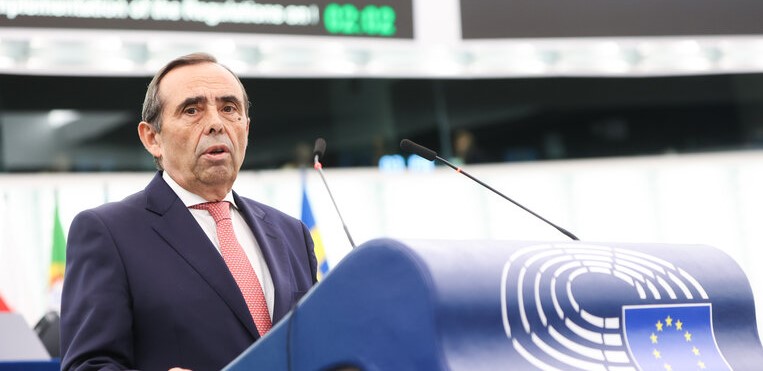The European Parliament confirms its strong commitment to the development and respect of the specificities of the ORs, following the adoption in plenary of the Report on the assessment of the new Commission communication on Outermost Regions, promoted as rapporteur by the MEP Álvaro AMARO (EPP, Portugal).
At this week’s plenary session in Strasbourg, MEPs adopted by a large majority, with 589 votes in favour, the Report on the assessment of the new Commission communication on Outermost Regions, supporting this new European roadmap, while reinforcing the need for Europe to provide an adequate response to the needs of these regions, on the basis of the respect for their specificities.
The European Parliament’s support in this regard is crucial, in order to go beyond the Commission’s proposals, in key areas for the outermost regions. It is necessary to highlight the enriching leadership of the European Parliament’s Committee on Regional Development and the interesting inputs from the Committees on Budgets; Agriculture and Rural Development; Transport and Tourism; and Employment and Social Affairs. Key inputs that should serve as inspiration and facilitate their specific development by the different departments of the European Commission.
Once again, it is clear that the EU represents a key support for the development of the ORs, although the effectiveness of European public action necessarily requires respect for the specificities of these territories which are located far away from the continent, through the systematic adaptation of all European policies, from the ecological transition to irregular migration to taxation and transport.
It is particularly important that 94 % of the European Parliament has expressed firm support in favour of continuing to support these regions, supporting with this reinforced majority the overall vision set out in this strategic document on the treatment to be given to the ORs, since it should facilitate the development and adoption of legislative initiatives to compensate for their remoteness, through specific treatments that guarantee equal treatment to the outermost regions in all European policies, by a systematic application of what the European Parliament itself has recognised as the need for an “OR reflex” in all proposals.
The report contains ambitious proposals, such as the measures requested from the Commission in the field of State aid concerning the non-recognition as state aid of payments to offset insularity and remoteness, in particular in the transport sector; or also to examine the possibilities of giving differentiated treatment to certain aids for airport, port and road infrastructure, so that they can be considered to have a purely local impact due to the fact that they do not create distortions in European competition.
It also calls for the replication of the agricultural POSEI model in other economic sectors in the ORs (fishing, transport, connectivity, energy and digital transition) as an initiative to promote a sustainable green and blue economy in the ORs.
Furthermore, with a view to ensuring regional competitiveness, it is stressed the importance of ensuring the continuity of the existing tax systems in the ORs, which have helped businesses and citizens in these regions to compensate for the outermost region gap and the additional cost overruns it entails, and above all by calling for smart combinations of social pillar measures, particularly in education, training and innovation to ensure the complex implementation in the ORs of the quadruple social, environmental, digital and energy transition.
On the other hand, it stresses the importance of the EU having a coordinated, humanitarian, effective and secure migration policy, ensuring genuine solidarity in response to migration flows, especially from conflict-affected areas, and providing aid to these regions in the management of irregular migration at their borders, in particular by facilitating the implementation of measures favouring the inclusion of people in particularly vulnerable situations, such as unaccompanied minors.
At the same time, the report is critical with the treatment of the ORs in some European initiatives, such as the `Fit for 55´ package, calling on the Commission and the Member States to support, in the framework of the ongoing interinstitutional negotiations, the proposals of the European Parliament to take account of their specificities, and also calling for an assessment of the impact of the implementation of this package of measures to adapt it to their reality.
In short, the report shows a deep understanding of the unique reality of the ORs, which combines important constraints to benefit from their full integration into the EU, with great opportunities that, with proper regulatory treatment, could enable them to realise their full potential for the benefit of the EU as a whole.


